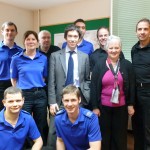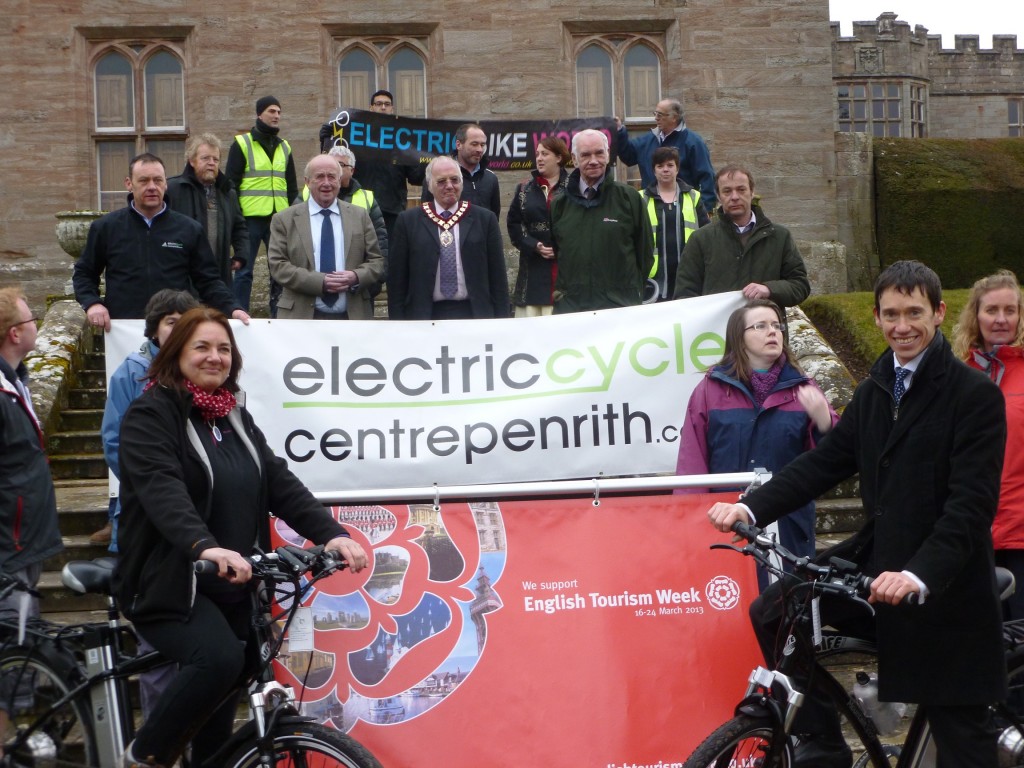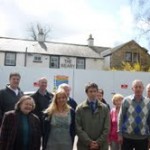british rural identity
I stood, on Sunday, with a friend, looking at his fields, which slope down, from the fellside to the water. The river was in spate, and silver lakes had formed in the meadows. He had got up early, to save his Swaledales from drowning. But where was he to put them? His drier fields, to the North, had rare herbs, and he had agreed with Natural England, not to put more sheep on them. And he owned no other fields. When he began, he had thirty acres – like others in the valley. Now, he has a hundred but that counts as a small farm today. A bad year, like this one, with poor sheep prices, torrential rain, and water-logged ground, could be catastrophic. He guessed that within a generation there would only be two farms left in the whole valley – large ranches, with hired labour – and all the remaining farmhouses would become homes for the wealthy. His sheep were dying “many because of fluke, but others, I feel, are just giving up.” As I walked up the fellside, I passed another dead sheep sprawled across a yellow-ant tussock.
This Monday, there was a debate in Parliament on funding for rural councils. I wanted to try to explain how the funding for schools, transport or housing, was the key to preserving our small farms, and our communities. I was joined by a dozen colleagues from other rural seats. Each speech focused on statistics and regulation: with jargon like “discrepancies in formula grants”, and “damping”. They demonstrated that people in rural councils received fifty per cent less per head than urban areas, paid more council tax, and received fewer services. The grant ignored the cost of heating rural homes, low wages, and minimal public transport. We begged for a little more money. But the ministers sat, shaking their heads, at every plea. One said, he’d just heard the same argument made for urban areas. And they had their own statistics. They appeared to feel that it was all just special pleading.
How do you convince someone in an urban area, to care about the nature of rural communities? That was our problem. Some made arguments on food security (the protein that is fed on our wet grass, will become more valuable as the world population grows, and wealthy Indians and Chinese want to eat more meat). Others argued that tourism is one of the most rapidly growing sectors in the rural economy: and people come to Cumbria not to see a picturesque wilderness, but to be part of a historical human landscape and community. But such economic arguments can always be answered with another blizzard of statistics, suggesting we can make money in a different way.
What we were failing to convey – or the ministers were failing to grasp – was, that living rural communities should also be seen as part of what makes for everyone’s British identity. (In other words, even the sense of nation which someone has in London gains strength from the reality of living villages). We are one of the most advanced developed countries in the world. It is over two hundred years since we began to clear our countryside of people, and lay mills, and factories, tenements, and civic palaces, across green fields. And yet by a miracle, we have preserved still some traces of where we began. But this precious survival is very fragile. Our organic, living communities — our young families, small farms, remaining schools, and men like my neighbour – are under extraordinary pressure from a dozen directions: from new environmental regulations, from fuel costs, and the vast powerful forces, which undercut all small rural shops, services, and farms, day after day. (Who can stand up to a supermarket?)
Without support, the character, and culture, and history of our rural areas will be lost forever. And we would become a land composed only of wealthy people who have moved to escape the cities. Cumbria is not the slopes of Spain, where the hillside is scarred and packed with half-completed concrete time-shares. Nor is it yet New Hampshire, where you can walk from house to holiday cottage, through scrubby woodland, aware only when you stumble across a half-broken dry-stone wall, that there were once any small farms at all. We are different even from the Scottish borders. Cross from Kershope to Newcastleton, and you are into a landscape of 2,000 acre farms, whose tenants have moved in from other areas of Scotland. The sheep in the heather are untended, and field after field has not a human in sight. Cumbria is – by some miracle – still, just enough of a living human landscape, rooted and connected through local families, to a local past. Our rural areas, are part of the civilisation and future and landscape we imagine for our grandchildren. Somewhere in the welter of statistics, we need to remember that one of the great responsibilities of government is to preserve some of what we cherish. And that includes our small farms, and our living villages. There is no
civilisation in a wilderness for millionaires.
















